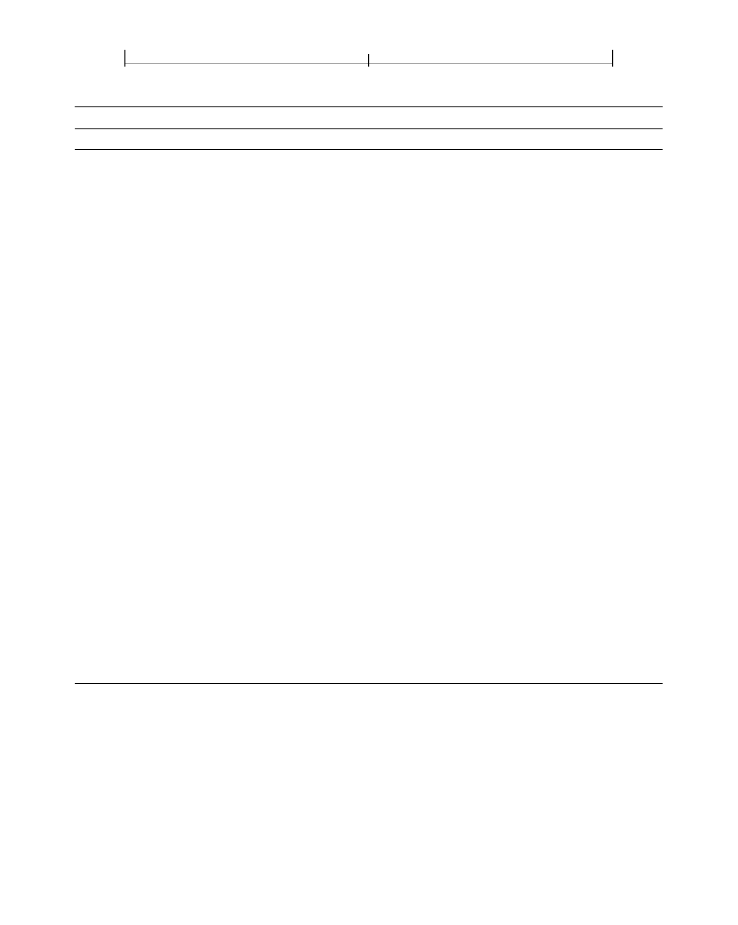
CHAPTER 4
324
Graphics
TABLE 4.34 Additional entries specific to a type 6 shading dictionary
KEY
TYPE
VALUE
BitsPerCoordinate
integer
integer
integer
(Required)
The number of bits used to represent each geometric coordi-
nate. Valid values are 1, 2, 4, 8, 12, 16, 24, and 32.
(Required)
The number of bits used to represent each color component.
Valid values are 1, 2, 4, 8, 12, and 16.
(Required)
The number of bits used to represent the edge flag for each
patch (see below). Valid values of
BitsPerFlag
are 2, 4, and 8, but only the
least significant 2 bits in each flag value are used. Valid values for the edge
flag are 0, 1, 2, and 3.
(Required)
An array of numbers specifying how to map coordinates and
color components into the appropriate ranges of values. The decoding
method is similar to that used in image dictionaries (see “Decode Arrays”
[
x
min
x
max
y
min
y
max
c
1,min
c
1,max
…
c
n,min
c
n,max
]
BitsPerComponent
BitsPerFlag
Decode
array
Note that only one pair of
c
values should be specified if a
Function
entry
is present.
Function
function
(Optional)
A 1-in,
n-out
function or an array of
n
1-in, 1-out functions
(where
n
is the number of color components in the shading dictionary’s
color space). If this entry is present, the color data for each vertex must be
specified by a single parametric variable rather than by
n
separate color
components. The designated function(s) are called with each interpolated
value of the parametric variable to determine the actual color at each
point. Each input value is forced into the range interval specified for the
corresponding color component in the shading dictionary’s
Decode
array.
Each function’s domain must be a superset of that interval. If the value re-
turned by the function for a given color component is out of range, it is
adjusted to the nearest valid value.
This entry may not be used with an
Indexed
color space.
The data stream provides a sequence of Bézier control points and color values
that define the shape and colors of each patch. All of a patch’s control points are
given first, followed by the color values for its corners. Note that this differs from
a triangle mesh (shading types 4 and 5), in which the coordinates and color of
each vertex are given together. All control point coordinates are expressed in the
shading’s target coordinate space. See “Type 4 Shadings (Free-Form Gouraud-